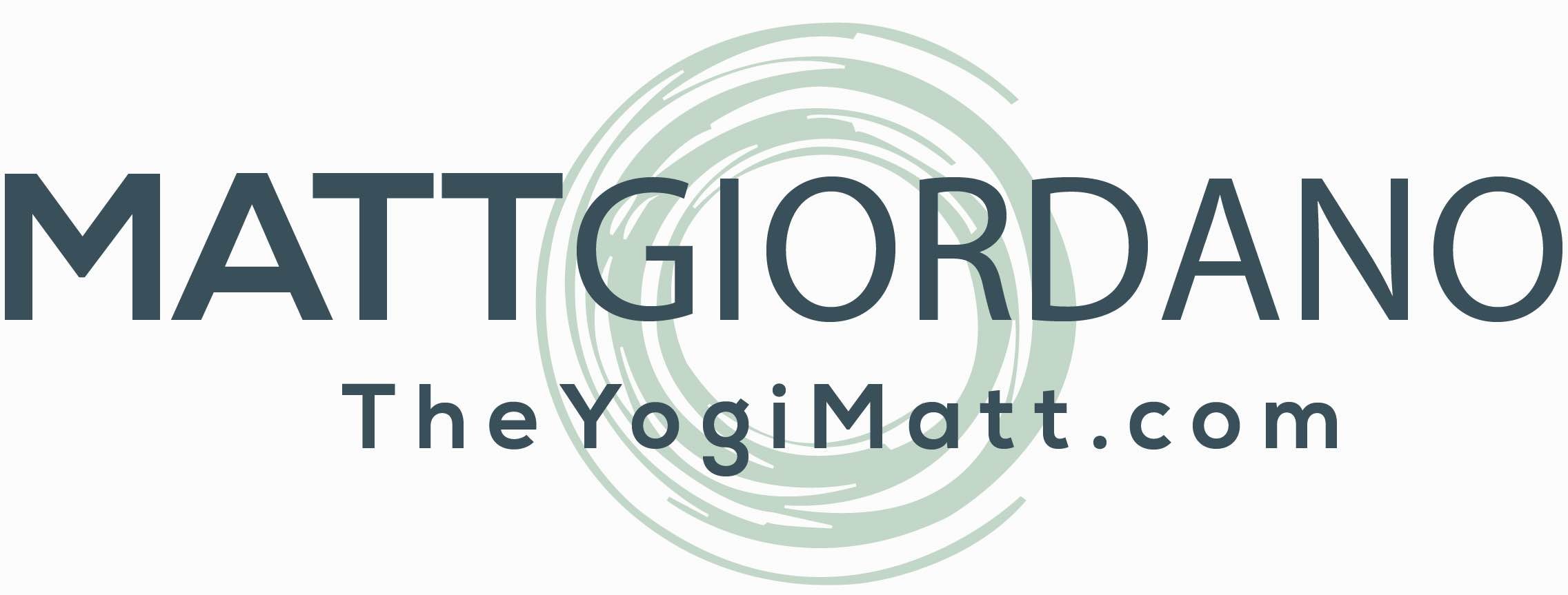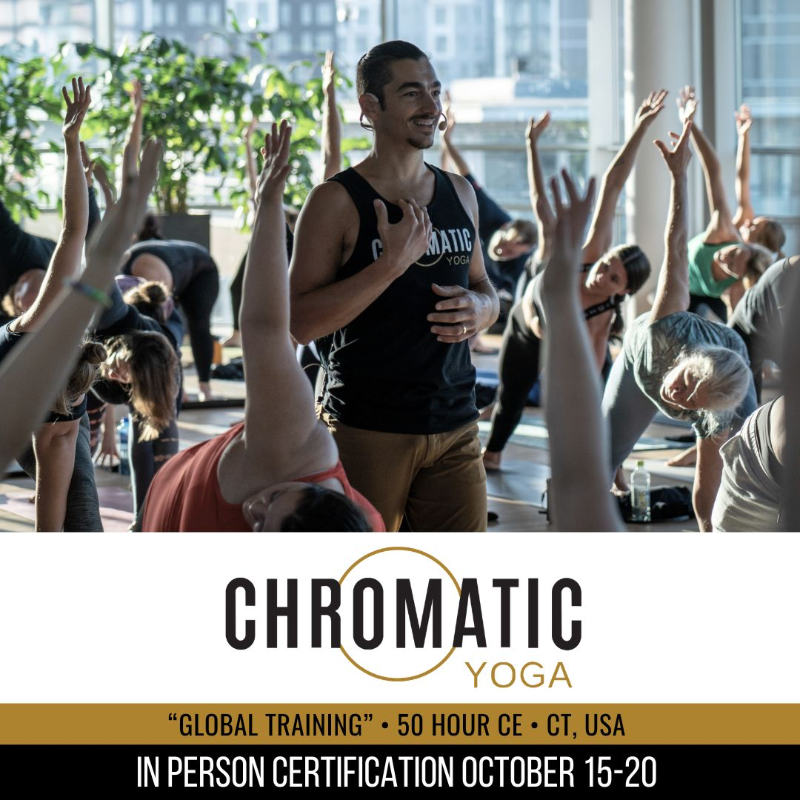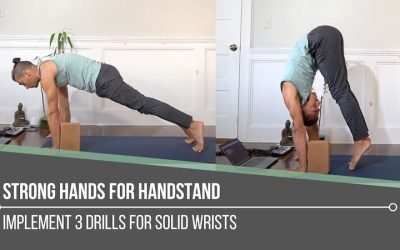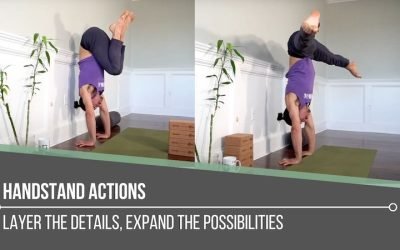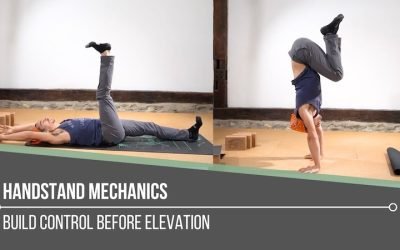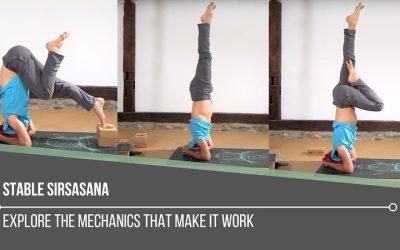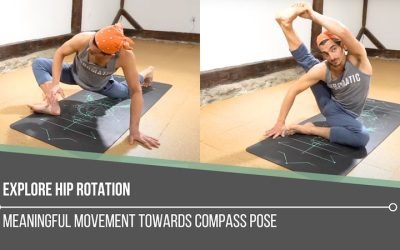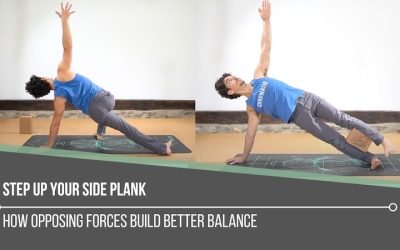Strong Hands For HandstandSTABILITYSTRONG HANDS FOR HANDSTAND When it comes to building strength for handstand, it starts at the base: our hands. Developing strong hands means targeting the wrist flexors, the very muscles that help create a trustworthy foundation....
Get Bendy
Get Bendy
Spinal Mobility
GET BENDY
In the yoga context, getting bendy can conjure up images of postures that may seem far-fetched or unattainable. What we should set our sights on instead is not an end result but rather all the things we learn while we’re exploring what is possible. Things to set our sights on include strength and, arguably more importantly, technique in order to actually access deeper flexibility. All of these ingredients support greater mobility.
In today’s video, Matt shares techniques to find greater spinal mobility through the movement of lateral flexion. Although it’s easy to become complacent with our regular tendencies, there is always room for growth. What we’ll see today is the use of 3 key actions along with specific drills that cultivate strength, flexibility, and overall better movement.
CHROMATIC GLOBAL TRAINING
REGISTRATION NOW OPEN
- Solve the "Yoga Teacher's Daily Grind"
- Become the BEST teacher you can be
- Get personalized feedback and support
- Learn anatomical sequencing and verbal cues
- Clear and impactful visual demonstration
- Strategic workshop design and sell out your events
- Become a Certified Chromatic Teacher
- Room for future growth: lead Chromatic Yoga Immersions and Trainings
STANDING DRILLS
In the first exploration of lateral flexion, Matt demonstrates a standing stretch for the obliques. Here, we learn a technique with 3 key actions that provide support and the ability to be a more active participant in the stretch. The actions include the following:
- Lean—a fairly isolated movement of the rib cage forward and to one side
- Cinch—”belly in and up” is the activation of the transversus abdominis, creating strength within the stretch
- Lift—namely of the rib cage on the side where we’re creating the stretch, which will create more space for the external intercostals
When we extend into the full stretch, the internal and external obliques on the opposite side strengthen, even as they assist with the stretch.
Next, we progress to a Chair Pose shape, targeting more of the internal obliques and quadratus lumborum and actively shifting between stretch and strength on each side.
WATCH THE VIDEO
GET BENDY: DRILLS TO UPGRADE SPINAL MOBILITY
GET ON YOUR BACK
The drill to get bendy on our backs demands an ample amount of awareness and strength.
First, the setup requires us to rest from head to tailbone on a blanket, with bent legs lifted. Some of the key points we need to be aware of are that the pelvis stays flat while we send it to the left and right; therefore, it’s the tailbone that turns. Our back, pelvis, and shoulders are all level on the ground—nothing lifts up off the ground. Once we have the technique down, we can move at a faster pace, still with intention but in a more rhythmic fashion. Since we’ve worked to engage the transversus abdominis and obliques in previous explorations, we adopt this engagement to support the strength required in this drill.
200 HOUR ONLINE TEACHER TRAINING
GET CERTIFIED & DEEPEN YOUR YOGA PRACTICE
- Deepen your yoga practice
- Build confidence speaking in front of groups in person and online
- Learn foundational class structures and templates
- Learn techniques for a wide range of yoga postures
- Get certified and highly qualified to teach yoga
- Yoga Alliance Globally Recognized Certification Program
FROG POSE DRILL
This drill may be more challenging than we think. Matt sets us up in a more “shallow Frog” in order to avoid vulnerability in the adductors, but finding the right position is imperative. If it’s too shallow, we may risk inner knee pain.
The position on the blanket and our desire to be “successful” may encourage us to compensate with the hip flexors, so we must remain connected to the obliques. What’s important here is to be intentional about moving the pelvis while the legs are fixed in the hip joints; they don’t move. It’s the pelvis that rotates. The legs only move as a result of the pelvis leading the way. Again, the strength comes from the external and internal obliques. To get bendy, we aim to move the elbow and knee closer to each other.
300 HOUR ONLINE TEACHER TRAINING
GET 500 HOUR CERTIFIED AS A MASTER TEACHER
Master your skill set as a teacher through refined techniques, anatomy, biomechanics, sequencing, philosophy, meditation techniques, theming, yoga business, and much more!
- Get 500 hour certified
- Learn anatomy, biomechanics, asana techniques
- Expand your teaching skills
- Masterful sequencing and verbal delivery
- Learn meditation and breathwork techniques
- Transformative tools: theming, dharma talks, satsang
STRENGTHEN TO BEND
If we want to get bendy and achieve the benefits of what comes along with that, we must include techniques and mechanics within our yoga practice that enhance support and strength. What are the benefits? There are many, but important to mention is that strong muscle fibers are more responsive, which encourages them to both contract and lengthen with more efficiency. Further, we will be able to stretch our muscles with better control, limiting the possibility of injury. In terms of spinal mobility specifically, it’s the activation of the core muscles that creates a band of support around the spine, allowing us to move in multiple directions with supreme confidence.
Don’t miss your opportunity to expand on these concepts in Matt’s upcoming Chromatic Global Training.
The 200 Hr. Teacher Training: Click Here to See the Next Start Date
The 300 Hr. Advanced Teacher Training: Click Here to See the Next Start Date
Article by Trish Curling
Video Extracted From: Breath of Fire Immersion
ONLINE ANATOMY COURSE
- Accessible, exciting, and easy to learn
- Anatomy and biomechanics for yoga
- Appropriate for both teachers and students
- Learn joint alignment vs pose alignment
- Demystify yoga poses and transitions
- Release aches and pains
- Learn how to avoid common injuries
- Caters to all levels with modifications and props
- 20 hours Continued Education Credits with Yoga Alliance
- 20 hours toward Chromatic Yoga Certification and 300 Hour
- Lifetime access
Continue Learning
Strong Hands For Handstand
Handstand Actions
Handstand ActionsLEAN, GRIP, PUSHHANDSTAND ACTIONS Handstand isn’t something we conquer in a single class, it’s a layered process that demands repetition and refinement. There are certain key handstand actions that are non-negotiable: lifting the shoulders up to the...
Handstand Mechanics
Handstand MechanicsINVERSIONHANDSTAND MECHANICS Stability, strength, and coordination come together in the pursuit of mastering handstand mechanics. One of the most critical foundations is internal rotation at the hip joints, which can aid with certain entries and...
Stable Sirsasana
Stable SirsasanaHEADSTANDSTABLE SIRSASANA Creating a stable Sirsasana is less about the final pose and more about the mechanics that lead us there. From weight transfer and spinal alignment to hamstring flexibility and shoulder engagement, each layer matters. Unlike...
Explore Hip Rotation
Explore Hip RotationSURYA YANTRASANAEXPLORE HIP ROTATION Hip rotation isn’t just an anatomical concept—it’s an open invitation to become more intimate with our body’s story. In yoga, we often live in lateral (external) rotation, especially in hip-opening postures....
Step Up Your Side Plank
Step Up Your Side PlankVASISTHASANASTEP UP YOUR SIDE PLANK Side Plank might look simple, but true proficiency starts in the details. One of the keys to refining the posture is learning how opposing muscle groups create an isometric contraction—a subtle engagement that...
THE FREE TECHNIQUE PACK
When You Subscribe, You Will Get Instant Access to
- the Technique Pack: 15 yoga pose breakdowns
- exclusive online course discounts
- exclusive blogs and videos
